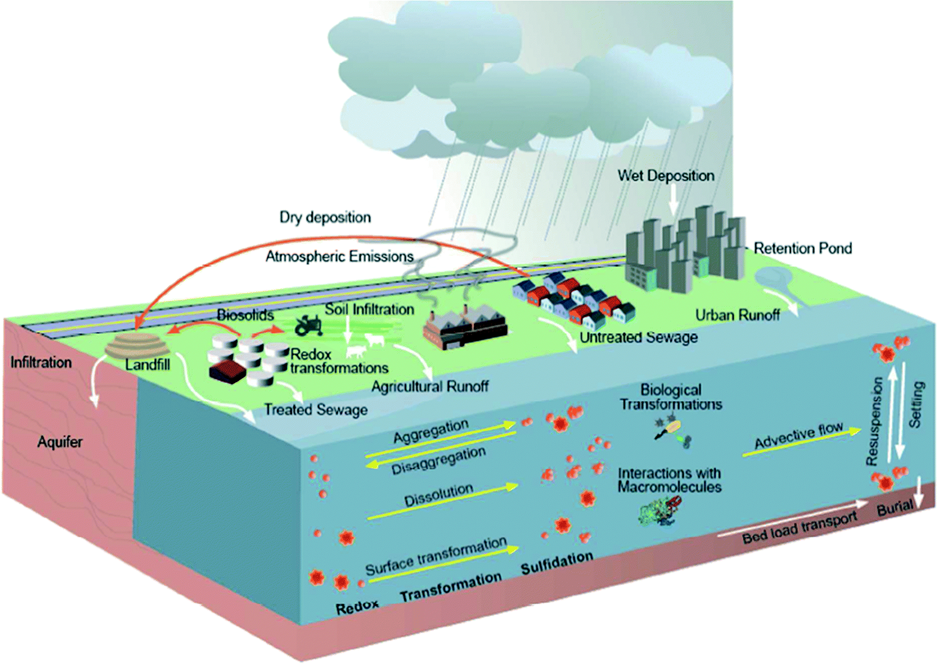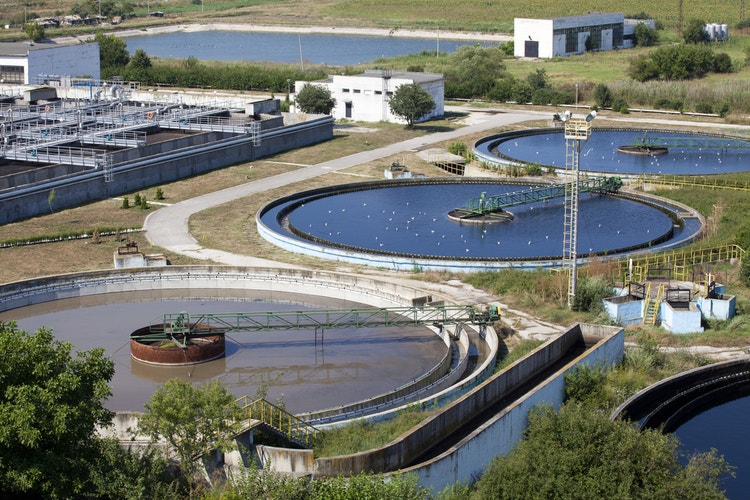Exploring Water Technology Startups: Exactly How They Reinvent Lasting Solutions
Water Technology start-ups are becoming crucial gamers in the pursuit for sustainable options to global water concerns. These firms utilize innovative technologies to improve water efficiency and management. Their payments address pressing challenges such as shortage and contamination. Nevertheless, in spite of their possibility, they face various challenges that can affect their success. Comprehending these dynamics clarifies the future of water sustainability and the function these startups may play fit it.
The Importance of Water Technology in Today's Globe
As global water scarcity increases, the significance of water Technology ends up being progressively apparent. Water Technology plays a critical role in addressing the challenges positioned by boosting and decreasing freshwater sources need. It includes a broad series of developments, including sophisticated filtration systems, wastewater therapy modern technologies, and smart irrigation solutions. These developments not just enhance the efficiency of water usage but additionally advertise sustainable techniques across different markets, including farming, industry, and metropolitan advancement.
The significance of water Technology prolongs past source management. It promotes durability against environment modification influences, such as floodings and dry spells, by offering adaptive remedies for water preservation and monitoring. Furthermore, it supports public health by guaranteeing access to safe and tidy drinking water. As the globe deals with growing water-related obstacles, the integration of sophisticated water technologies is important for cultivating lasting advancement and protecting water schedule for future generations.
Ingenious Solutions From Water Tech Startups
While typical methods to water administration have actually served their function, a new age of water tech start-ups is reinventing the industry with innovative solutions (Water Technology Startups). These companies utilize sophisticated innovations to resolve pressing water problems, such as shortage, contamination, and ineffective distribution. Lots of startups make use of fabricated knowledge and artificial intelligence to enhance water usage and predict need, causing more lasting practices
Furthermore, a number of companies concentrate on creating sophisticated filtration systems that eliminate contaminants and make water safe for intake. Others explore decentralized water treatment modern technologies, allowing areas to manage their water resources a lot more successfully. Moreover, some startups are introducing clever watering options that reduce water waste in agriculture, advertising environmental preservation.
Situation Studies: Successful Water Technology Startups
Various water Technology start-ups have become leaders in dealing with international water challenges with innovative methods. One remarkable example is Xylem, which concentrates on water analytics and smart facilities to maximize water use and reduce waste. Their services have actually been executed in different municipalities, showing considerable improvements in water management efficiency.
One more effective startup, No Mass Water, has actually created solar-powered hydropanels that remove water vapor from the air, supplying lasting drinking water in deserts. Water Technology Startups. This Technology has been released in several countries, ensuring areas have accessibility to tidy water
Last But Not Least, AquaVenture Holdings runs a diverse portfolio of water-as-a-service remedies, addressing water deficiency with desalination and wastewater treatment. Their jobs have verified important in regions dealing with extreme water shortages, showcasing the possibility of innovative water modern technologies to produce long-term, positive effects. These case studies highlight the transformative capacity of startups in the water Technology field.
The Function of Smart Technology in Water Monitoring
Smart Technology plays an essential function in contemporary water management by leveraging IoT applications to enhance resource use. Data analytics boosts efficiency by supplying workable understandings, while remote surveillance services enable real-time oversight of water supply. Together, these technologies transform how water is managed, advertising sustainability and functional performance.
IoT Applications in Water
As water shortage and management challenges increase worldwide, the combination of Web of Points (IoT) applications has arised as a pivotal remedy in enhancing water sources. IoT Technology facilitates real-time surveillance and evaluation of water supply, enabling much more efficient usage and administration. Sensors released in numerous water infrastructures can track high quality, circulation rates, and leak, providing useful information to stakeholders. This information empowers energies and customers to make informed decisions, reducing waste and boosting preservation efforts. Additionally, wise irrigation systems utilize IoT to maximize water delivery for agriculture, making sure that plants receive the appropriate quantity of water at the correct time. In general, IoT applications are transforming standard water monitoring techniques, cultivating sustainability and durability in water resource systems.
Data Analytics for Efficiency
Taking advantage of data analytics is important for improving performance in water management. Water Technology startups are progressively utilizing innovative analytics to maximize resource appropriation and lower waste. By examining data from various sources, these start-ups can determine patterns and trends that educate far better decision-making. Anticipating analytics can forecast water demand, allowing utilities to readjust supply appropriately, thus decreasing excess and lacks. Additionally, real-time information handling allows the instant detection of leakages and inadequacies within distribution systems, greatly lowering operational costs. Additionally, data-driven insights equip stakeholders to execute targeted preservation strategies, cultivating lasting practices. Fundamentally, integrating data analytics into water administration not just streamlines procedures yet additionally advertises lasting sustainability in water resource usage.
Remote Monitoring Solutions
While conventional water monitoring systems frequently battle with inefficiencies, remote monitoring options are transforming just how water resources are taken care of. These ingenious technologies enable real-time data collection and evaluation, permitting stakeholders to monitor water quality, circulation rates, and usage patterns from afar. Making use of sensors and IoT gadgets, remote surveillance supplies immediate understandings that assist in aggressive decision-making. This shift not just boosts functional efficiency but also advertises sustainability by minimizing water waste and maximizing resource allocation. Furthermore, remote surveillance systems can determine potential issues before they escalate, therefore decreasing the danger of contamination or facilities failure. As water Technology start-ups remain to develop these remedies, the market is poised for considerable advancements in sustainable water management practices.
Obstacles Dealing With Water Technology Startups
Water Technology startups come across considerable obstacles that can hinder their development and success. Trick issues consist of securing appropriate funding, navigating with intricate governing environments, and contending in a jampacked marketplace. These obstacles require critical planning and technology to get rid of.
Financing and Financial Investment Hurdles
Although development in water Technology holds enormous capacity for resolving global obstacles, start-ups in this market often deal with substantial financing and investment hurdles. look at this web-site Lots of financiers continue to be careful, perceiving the water industry as risky as a result of its complicated regulative landscape and lengthy advancement timelines. In addition, start-ups usually battle to demonstrate immediate productivity, which can deter potential backers. Standard equity capital may forget water innovation, preferring fields with quicker returns, such as technology or consumer goods. Safeguarding gives and government funding can be lengthy and competitive, more complicating economic security. Because of this, many ingenious water Technology start-ups discover themselves in a precarious setting, requiring creative funding approaches to browse these financial barriers and attain their goals
Regulative Conformity Issues
Guiding governing compliance is a considerable challenge for start-ups in the water Technology market, as they should grapple with a myriad of regional, national, and global guidelines. These policies usually include water high quality requirements, environmental management laws, and safety methods, which can vary extensively throughout territories. Start-ups might discover it tough to browse this complicated landscape, particularly when scaling operations or going into brand-new markets. The expenses connected with compliance can be substantial, diverting resources away from advancement and product advancement. In addition, delays in acquiring needed permits or certifications can hinder growth and market entry. A robust understanding of regulative structures is vital for these startups to assure sustainable operations and stay clear of prospective legal consequences.
Market Competitors Characteristics
As water Technology startups emerge in a competitive landscape, they encounter numerous difficulties that can click for source impede their growth and technology. Developed companies commonly dominate the marketplace, leveraging sources and experience to preserve their placements. Start-ups struggle with minimal funding, which restricts research and growth abilities, making it tough to compete on Technology and prices. Additionally, the swiftly evolving nature of water technologies needs consistent adaptation, more straining start-up resources. Regulatory hurdles can complicate market access, as conformity with ecological requirements is crucial yet pricey. Bring in skilled skill in a niche field offers another obstacle, as bigger companies might provide even more enticing work bundles. Consequently, these aspects create a complicated setting for water Technology start-ups intending to do well.

The Future of Water Technology and Sustainability

The future of water Technology will likely concentrate on incorporating artificial intelligence and data analytics to enhance water distribution and usage patterns. By using real-time data, firms can forecast shortages and manage sources extra efficiently. Additionally, sustainable techniques will certainly come to be a foundation of the sector, motivating round economic climates where water is recycled and dealt with. Eventually, the ongoing evolution of water Technology will be essential in developing resistant frameworks efficient in satisfying the difficulties posed by climate change and population growth while promoting ecological stewardship.
Regularly Asked Inquiries
What Are the Key Metrics for Assessing Water Technology Startups?
Trick metrics for assessing water Technology start-ups include market capacity, scalability, customer procurement costs, profits development, modern technology advancement, regulatory compliance, environmental impact, competitive advantage, and group know-how, all essential for identifying long-term stability and success.
Just How Can People Assistance Water Technology Innovations?
Individuals can sustain water Technology advancements by purchasing startups, promoting for plan modifications, taking part in neighborhood campaigns, sharing understanding regarding lasting practices, and advertising recognition of water problems via local events and social media.
What Are Common Financing Sources for Water Tech Startups?
Usual funding resources for water technology start-ups consist of endeavor resources, federal government gives, crowdfunding systems, angel financiers, and business collaborations. These monetary methods help assist in advancement and growth in sustainable water monitoring innovations.

Which Industries Advantage Most From Water Technology Advancements?
Industries such as farming, energy, production, and municipal services benefit substantially from water Technology improvements. These technologies boost water efficiency, decrease expenses, and advertise lasting techniques, ultimately contributing to ecological preservation and resource monitoring.
Exist Any Kind Of Regulative Difficulties Certain to Water Technology?
Yes, water Technology faces regulatory challenges, including conformity with ecological requirements, allowing processes, and varying regional regulations. These complexities can hinder development and slow down the implementation of new innovations in the water administration market.
Water Technology startups are emerging as important gamers in the quest for sustainable options to worldwide water concerns. As international water deficiency escalates, the importance of water Technology becomes significantly evident. Others discover decentralized water treatment innovations, enabling neighborhoods to manage their water resources much more efficiently. One more successful startup, Absolutely no Mass Water, has developed solar-powered hydropanels that draw out water vapor from the air, offering sustainable drinking water in dry areas. Their projects have shown vital in areas facing serious water shortages, showcasing the potential of ingenious water innovations to create enduring, positive influences.